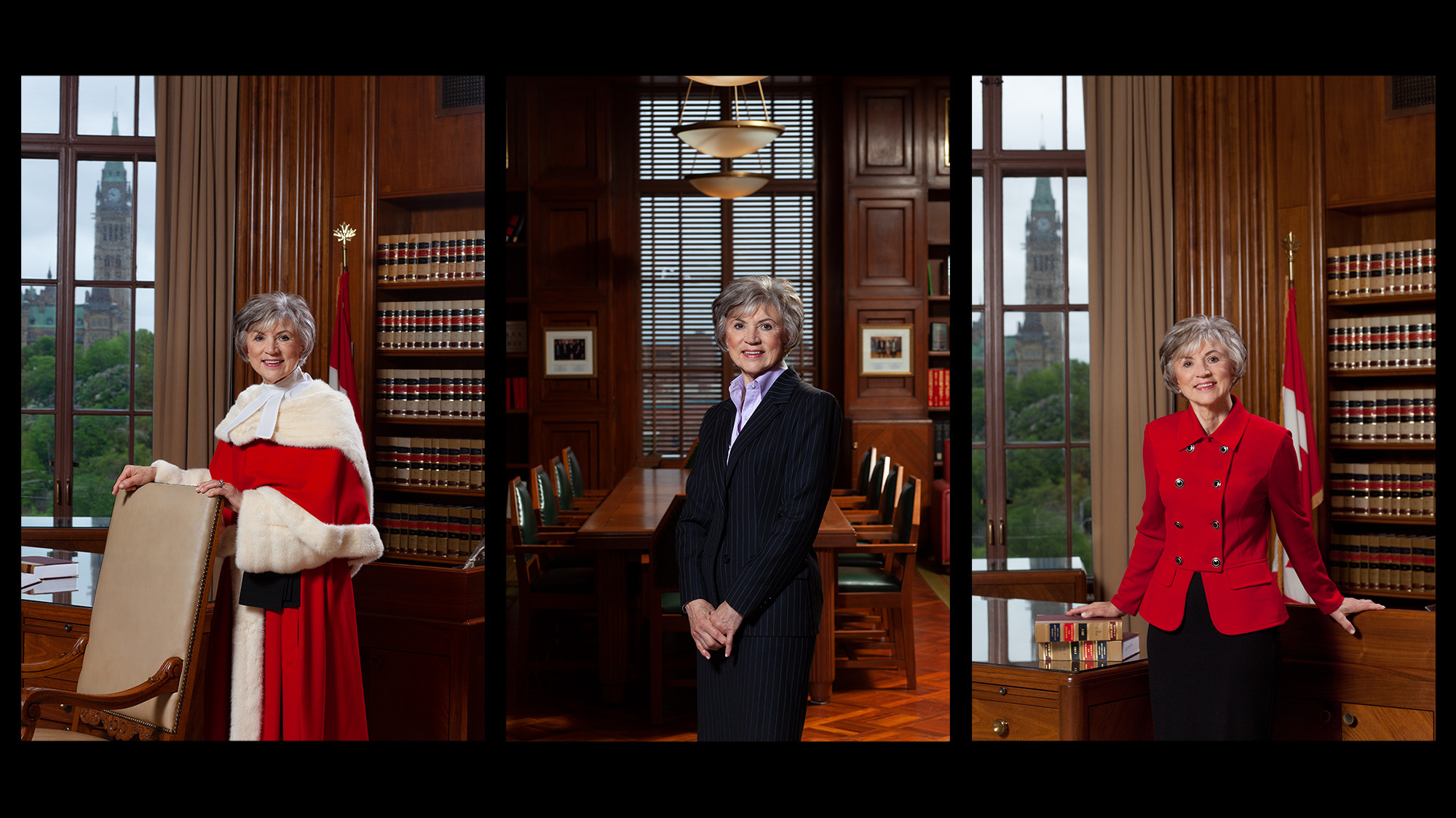
I met Beverley McLachlin on the first day she was sworn in as a novice Justice of the Supreme Court. Having photographed her predecessors for a decade she was surely a breath of fresh air. I remember suggesting something different than the traditional portrait and having consistently failed at getting much cooperation on something a bit more creative, I was stunned when she agreed.
We spent an hour in the empty courtroom and became friends that day, so much so that she gave me the honor of photographing her wedding in that same building. I was stunned to watch her wipe a tear from her eye in a place where I had never seen the emotion of love in all my years of photographing for the Court.
Chief Justice McLachlin proved to me throughout her career that she was not only a voice of compassion and conciliation but could be a tough adversary to a certain Canadian Prime Minister.
Her legacy is huge. She was the 7th Chief Justice of Canada from 2000 to 2017, the first woman to hold that position and the longest serving Chief Justice in Canadian history. In May 2015, McLachlin was invited to speak at the Global Centre for Pluralism, and said that Canada attempted to commit “cultural genocide” against aboriginal peoples in what she called the worst stain on Canada’s human-rights record.
McLachlin has stated, “I think the court belongs to the Canadian people and it should reflect the Canadian people.” This is “not only to convey an impression of balance, but to bring in perspectives that were so long absent from the judicial imagination.” To her, judgment is not a coldly neutral evaluation of competing positions, robotically free of passion or perspective. It is an engaged, human act of imagination.”